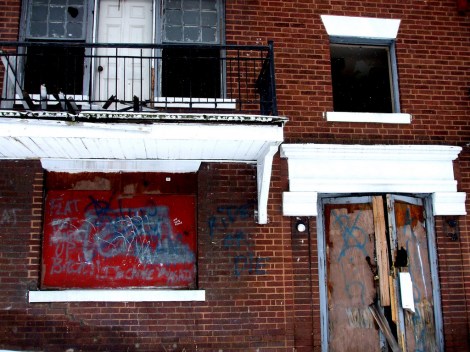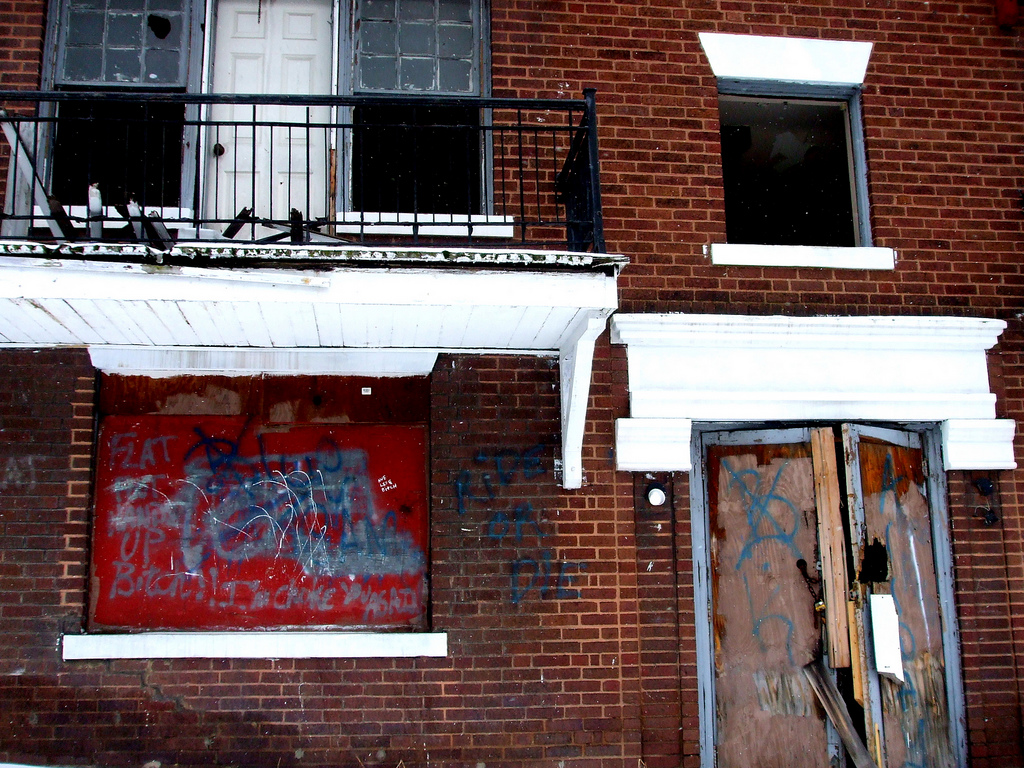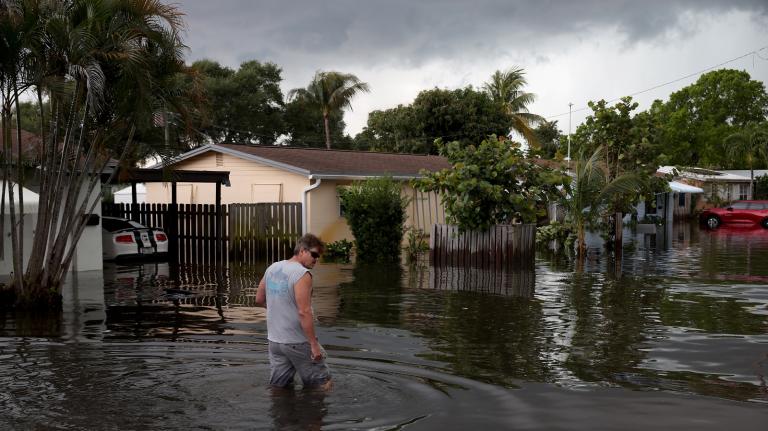Good samaritans in Ohio may be getting a reprieve from potential misdemeanor charges.
Today the state House is voting on a bill that would allow people to clean up vacant, blighted properties without fear of a trespassing charge. This measure essentially gives residents more power to improve their neighborhoods, harnessing NIMBY instincts for good. From The Columbus Dispatch:
Some residents hesitate to take care of the properties around them because they risk trespassing charges, said Tiffany Sokol, office manager of the nonprofit Youngstown Neighborhood Development Corp., which boards up and cleans up vacant properties. The bill would allow individuals to clean up blighted land or buildings that have clearly been abandoned.
“Very ugly, nasty places,” [said Sen. Joe Schiavoni (D), the bill’s sponsor]. “These properties are an eyesore, a danger to their neighbors.”

mbmatt356Blight in East Cleveland.
The Rust Belt is only getting rustier, and Ohio communities have tried a number of strategies to fight neighborhood blight. Yesterday, The Columbus Dispatch and a city website published the names of negligent owners of more than 100 blighted properties. The city called it a fight for neighborhoods.
City Attorney Richard C. Pfeiffer Jr. said anything is worth a try.
“If it gets their attention, good,” he said.
In Cleveland, officials are rehabbing the shrunken city by aggressively tearing down houses, not fixing them up. From National Journal:
“Trying to convince my colleagues that demolition was the right way to go was against everything we had been taught,” said [city council member Anthony] Brancatelli, who spent his time at [Cleveland’s] Slavic Village Development Corp. focused on building, not destroying. “We built 500 new homes and rehabbed about a thousand and the market was good,” he said of his early years. But then he saw the market change. And he saw the speculators swoop in and devastate the neighborhood he loved. “There was the mentality of this wild, wild west of real estate that defies any logic that I grew up on,” he said.
He also saw the devastating impact on his neighbors. He still gets emotional about his dealings with one elderly woman who had lived in the same small house for 80 years with her family operating a butcher shop in the front of the house. But now she was the last member of the family in the house and needed to move out. “That,” said Brancatelli, “was probably the hardest thing I had to do was tell this poor woman that all we were going to do is tear it down. … She just cried.” …
[Jim Rokakis, former Cuyahoga County treasurer,] became an unlikely champion of demolition over rehabbing the abandoned houses. “By 2007, it became obvious to me that this was a war,” Rokakis told National Journal. “We had lost. And now we had to bury the dead. And ‘bury the dead’ meant taking these houses down, many of them functionally obsolete.” The logic, he said, is inescapable. “If you live next to a foreclosed house, your house is worth 10 percent less. If you live on a street with multiple foreclosed properties, your house isn’t worth 10 percent less. Your house is just worthless.”
While other progressive bastions of urban idealism wring their hands, Ohio is picking itself up and getting shit done. As Richey Piiparinen writes at New Geography:
[T]his groundedness, this Rust Belt-ness, it’s not a settling or a lack of aspiration, but rather — for Clevelanders populating the city that never knew its heights — a chance to look around and see nothing but work to do, and an opportunity to do it. There are a lot of fresh eyes around. The city psychology is changing. And I think this may save Cleveland, because people are no longer waiting for Cleveland to save us.
The Rust Belt may be gritty, beat-down, and other patronizing adjectives we seem to reserve for post-industrial American cities, but there’s a lot of hope in it yet.




